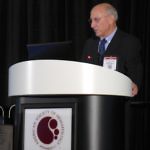Xencor and Novartis storm the hematologic bispecific market
This morning, like many folks, I woke up to the latest immuno-oncology news on the bispecific front that Xencor, a Los Angeles based biotech, announced their latest collaboration, this time with Novartis.
Over the last few years, we have seen a surfeit of bispecifics emerge that are focused on stimulating the immune system, particularly with regard to T cells and natural killer (NK) cells, as well as antigen targets on the surface of tumours. The first one approved was Amgen’s blinatumomab (Blincyto), a CD19 targeted bispecific for the treatment of acute lymphoblastic leukemia (ALL), which we have written extensively about.
 The Xencor/Novartis deal has a number of interesting implications that are well worth exploring in more depth that go far beyond the information provided in the press release.
The Xencor/Novartis deal has a number of interesting implications that are well worth exploring in more depth that go far beyond the information provided in the press release.
To learn more, existing subscribers can simply log-in to read the article…
This content is restricted to subscribers
 What questions are BSB readers sending in to us this month?
What questions are BSB readers sending in to us this month? To answer these questions, we put together a primer based on the groundbreaking research of Dr Steven Rosenberg (NCI Surgical Branch), and his invited talk at the recent American Society of Hematology (ASH) meeting.
To answer these questions, we put together a primer based on the groundbreaking research of Dr Steven Rosenberg (NCI Surgical Branch), and his invited talk at the recent American Society of Hematology (ASH) meeting.